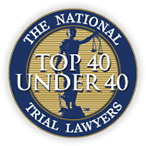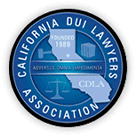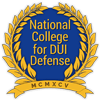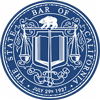









An appeal is a plea to a higher court to reverse a lower court’s decision. Appeals correct legal mistakes that have resulted in an unfair legal outcome. However, they do not apply to a defendant who simply disagrees or is unhappy with the trial court’s ruling.
Our reputable team of Ontario appeals lawyers at the Law Offices of Scott Henry has represented our clients’ interests for over four decades. For dedicated and results-driven appellate representation, contact our offices today for a free case review. Our defense attorneys have the experience, skills, and resources necessary to effectively advocate on your behalf and are committed to fighting aggressively for the legal outcome you deserve.
If a conviction occurs following a defendant’s guilty plea, the defendant does not have an automatic right to appeal their conviction. They must be granted permission by the appellate court to proceed. In criminal cases, a defendant convicted by a judge or jury has an absolute right to appeal their conviction. Also, states that enforce the death penalty allow an automatic appeal of cases that involving this punishment. A lawyer in Ontario could determine if a person has the right to appeal their case.
Under California Penal Code 1237 PC, a defendant has a right to appeal the verdict or sentence if they feel a legal error led to an unfair outcome. This process does not result in a new trial, simply a review of the original court’s proceedings. Legal grounds for an appeal include:
Most appeals take around a year from the time the notice is filed to the appellate court’s final determination. There are several key steps in the appeals process with which an attorney in Ontario could help.
After a notice of appeal is filed, the court clerks begin preparing the transcripts in the case. This process can take anywhere from a month to six, depending on the length of the original trial.
Written briefs are the most essential part of the appeals process. The first brief is the appellant’s opening brief, which summarizes the procedural history and evidence in the case. This document contains the appellant’s “argument.” In the argument, the appellant asserts that legal errors led to an unfair outcome; and therefore, the defendant should be given a new trial or a revised sentence.
After the appellant’s brief, the respondent, or opposing party, will file their brief. They often assert that the appellant’s issues should be waived because they were not raised at trial, that no legal errors were made, or that there was an error made, but it did not affect the outcome of the case.
The appellate court will ask the parties if they wish to make an oral argument. If an oral argument takes place, the attorneys for both sides go to the court and argue in person. An oral argument typically only takes place if there is something that needs to be addressed that was not already stated in the briefs.
The appellate court reviews the case and discusses the issues. The three appellate judges will then vote. At least two judges must agree to reach that decision. Their decision is provided in written form to both the appellant and respondent within 90 days from the ending of the oral arguments.
When appellate courts decide to grant an appeal, the previous court’s decision is reversed, and the case is sent back, or “remanded,” to the trial court. If you win your appeal, the prosecution still has the option to appeal this decision to a higher court.
After an appeal, the prosecution generally wants to avoid retrying the case and will often offer a deal. They may offer you the opportunity to plead guilty to an offense with a sentence of time served, or they may offer a plea bargain that is much more favorable to you than what was decided by the previous court. If the prosecution feels you would likely not have been convicted if legal errors were not made, he or she may choose to drop the charges against you completely. An Ontario attorney could help someone determine what the best move may be after their appeal has been granted.
If you received an unfair verdict or an unjustly harsh sentence, there are legal avenues a reputable Ontario appeals lawyer can pursue. Our legal team at the Law Offices of Scott Henry has what it takes to skillfully represent you. We have the unique experience needed for successful appellate advocacy and are committed to fighting diligently to get the resolution you deserve. Time is of the essence, so contact our offices today for a free consultation.
